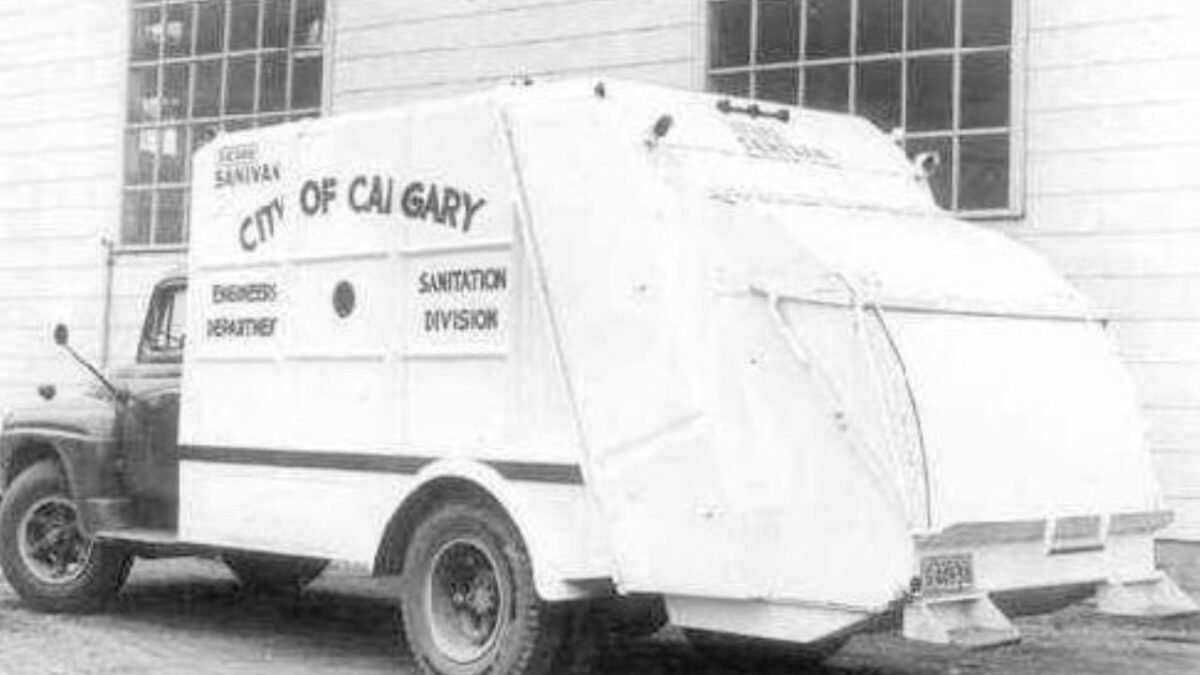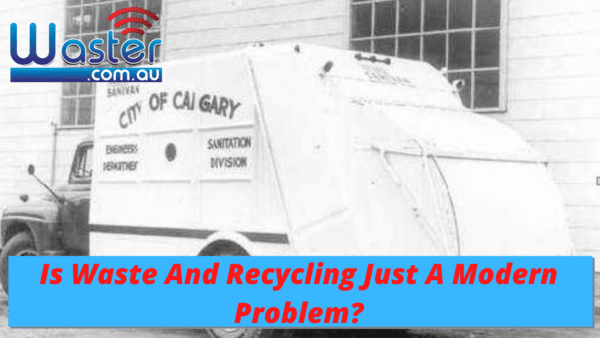
Australia’s Plastic Waste Problem ♻️ Podcast Ep. 6 Don’t Be A Waster
Australia’s Plastic Waste Problem ♻️ Podcast Ep. 6 Don’t Be A Waster
Listen on Apple Podcasts Listen on Spotify Listen on Google Podcasts Listen on Stitcher Listen on Amazon Music
In this episode of Recycle: Don’t Be A Waster! – we look at the issue of waste and recycling – and ask is this a modern problem? Did this issue occur in the past? We also look at why landfills were invented.
Transcript – Australia’s Plastic Waste Problem!
Hello and welcome to another edition of our podcast on all things recycling – Recycle: don’t be a Waster. Today we want to cover the I suppose the idea or the topic that the idea of a waste problem or the major issues we face with waste and recycling. I suppose we look at the concept that these are a modern creation they are an issue that people did not have even in relatively recent times and I will argue in this podcast that fundamentally the entire problem with recycling the entire problem with waste is probably much more recent than we expect and it’s fundamentally tied to a consumer culture a throwaway culture and b the prevalence of plastic so that’s the proposition I will discuss today and we’ll get straight into it you anywhere you read the press you watch television you are aware that we have a recycling crisis we find it harder and harder to recycle and get rid of and dispose of all the waste that we produce and you know we have landfills, we have the great pacific garbage patch we have increasing waste and recycling issues seemingly everywhere. Australia’s Plastic Waste Problem
We questioned on these podcasts and elsewhere should we incinerate how can we build new recycling facilities but you know if we even look back in relatively recent times let’s go back to you know the invention of the of the landfill people are often surprised that landfills are a reasonably recent invention I think most evidence suggests that landfills started predominantly in north America and England towards the end of the probably the 1800s and in many ways they were a solution for a problem they were not actually developed primarily to get rid of waste they were primarily developed or invented as a new technology to fill in land hence the word landfill they were used primarily to fill in old mine shafts in the north of England outside towns and also in some of the coal mining areas like in Pennsylvania in the United States whereby once a coal seam or whatever mining it was had been exhausted there was a large hole in the ground left which was unsightly and be dangerous and so filling it in was the way it was seen as a great idea.
Filling it up with waste filled up that hole you know it was only in later times when then our waste increased and increased that we had to go and find more and more facilities for landfills you know if this is the scenario you might be asking well what happened before this why did we not need landfills before this invention you know fundamentally the reason is we just did not produce as a society or as in the various societies in the various countries we just did not produce that much waste we were very much i suppose from a financial perspective an income perspective most people in recorded history were not as wealthy as we are today we didn’t consume as many goods and also it was much more of a mend and make do society people you know people you darn socks you reuse products you know and we’ll go through the examples of this to demonstrate but we weren’t once something was consumed or used it wasn’t just chucked on the scrap heap and things were generally designed to be much more long-lasting.
>Download Now: Free PDF Business Owners Guide To Commingled Recycling Bin Services
You can see this in any aspect of life so you know if you look at let’s just take an average you know an example here from say the 1800s you know a small house it doesn’t matter where it was food waste there would have been very little food waste as food was a hard come by product and you know you were feeding bigger families people consumed the food they had and if they didn’t finish that food off it generally would have been fed to an animal whether a pet a dog or a domestic animal for such as hens you know a cow whatever it was and goats whatever it would have been pigs the food would have been utilized to feed up that livestock. Australia’s Plastic Waste Problem
So fundamentally there would have been virtually no food waste you know stuff like timber wood obviously it would have been burned for heating so again no waste concepts such as the rag and bone man who would have been in most developed towns he would have gone around and collected items for recycling such as brass tin metals, a cloth anything like that that could be used and recycled would have been taken virtually none of it would have been thrown out it would have been reused recycled in quite a manual manner but it nearly all would have been used and when you look into that there just wasn’t that much waste produced.

We also probably lived in a society where items and materials were built for the long term we didn’t have this concept of every year getting a new football shirt every year getting a new product you know the new iPhone comes out when people bought that bought items they were designed to last for a long period of time the quality of manufacture the long lasting aspects you know if you bought a table it was designed to last forever and multiple generations there was no concept that you would pop down to Ikea and buy a new one you know to fit your new wallpaper that that concept I would say potentially of the very wealthy which was a very small percentage of society that concept did not really exist. Australia’s Plastic Waste Problem

So the sheer production of waste there virtually was none and until really until the invention of plastic and the widespread introduction usage of plastic which you know for the purpose of simplicity let’s argue really kicked off from say the 1920s 1930s and became more and more widespread in the post-second world war period when those items were produced that created lots of waste that fundamentally was thrown away could not be readily reused by people and that created an ongoing waste problem of and also materials that do not naturally break down quickly in the natural environment and so obviously they stockpile and build up and build up in the natural environment and cause horrific scenarios such as the great pacific garbage patch so I suppose those are that’s I think that really is the answer. Australia’s Plastic Waste Problem
I would really tie it back to two issues the introduction of plastic and the introduction of an increased consumer society whereby consumerism you know is pushed through television through marketing and people are constantly buying the latest the greatest you know car manufacturing I think even back to the early years eras of the car industry whereby the concept that you get a new model that would come out each year that was a an innovation even items and there is a I think we touched on a conspiracy theory in one of the older episodes of this podcast there was there is a conspiracy theory called planned obsolescence it’s a quite interesting one that supposedly when items were invented back say night early 1900s they were designed to last and there are many examples of this such as I think there’s still a light bulb burning in a in somewhere in California in a in a fire station a light bulb burning that was put into the into the roof back almost 100 years ago but when it was developed they were designed to last pretty much forever there’s this conspiracy theory that through planned obsolescence.
Now items are designed to stop working and so you have to buy a new one that concept you can even see it in I suppose western, when we talk about the old soviet bloc they made products to last a long time also so people are still using soviet era refrigerators in countries like Russia etc whereas the western ones have which might have had higher specs etc but they tend to break down and create huge amount of e-waste and other waste so you know we have this problem that we’ve created for ourselves but if we look and in our podcast we often cover how do we get rid of them how do we you know recycle them how do we how do we deal with these problems but fundamentally what causes the problem the problems are caused by mass consumerism aligned with a throwaway culture and secondly the very tough conundrum and product and problems presented by the usage of plastic if you strip away those two issues particularly plastic the waste problems that we face will dwindle will become much smaller much more addressable but for some reason we do not want to talk about these problems society is very keen on you know hiding away from the real problems the real reasons for problems we tend to like to hide the symptoms and not really treat the actual causes.
Until I suppose until we really look at what’s causing these longer-term issues we will continue to have this problem and prevention is always better than cure so you know I think you’ll get that digested over the course of these podcasts we are tend to argue for reducing the usage of plastics whenever possible and certainly you know single use or throwaway plastics realistically we we’re not going to go back to the society of the 1800s or 1900s which clearly had also significant issues significant poverty you know and increased consumption clearly helps people and gives people better lives in many regards so we’re not arguing for that but what we are arguing for is a sensible recognition of the problems that our choices make and when we look at you know mass consumption it is not a guilt-free pleasure in many regards so we’ll leave it there today.
Of course I’ll be interested in hearing your questions your comments so you know subscribe rate and reviews of course also on the platforms you listen up listen to and yeah have a have a great day also recycle don’t be a waster
Leave a Reply Cancel reply

Product categories
Most Popular Posts
-
Commercial Waste Management Services: Reduce Waste Collection Costs! 🚍
-
Medical Waste Disposal: Everything You Need To Find Out In 2024! 💉
-
Rubbish Removal Sydney 2024: Better Bin Collections For Business ✅
-
Clinical Waste Disposal 2024: What To Know About Business Clinical Waste ⚕️
-
Secure Document Destruction 2024: All About Security Bins Shredding 🔒
-
Free Cardboard Recycling 2024: Can I Get Free Cardboard Collection? 📦
-
Confidential Paper Disposal Bins 2024: What You Need To Know About Shredding! 🔒
-
Recycling Bins Australia 2024: Recycling Can Boost Your Profits! ♲
-
Commercial Wheelie Bin Collection: What Businesses Need To Know In 2024 🗑️
-
Commingled Recycling 2024: Why Commingled Bin Is Key To Recycling 🍾













